La Dolce Vita Is Back: How Rome’s Via Veneto Is Regaining Its Allure

Walking along Via Veneto in Rome, one is mesmerized by the grandeur of the avenue, with its wide sidewalks, gigantic buildings that were once luxury hotels, the tall trees that line the road. It’s been known as Rome’s Champs-Élysées or the equivalent of Italy’s Fifth Avenue. The street was catapulted to fame by Federico Fellini’s iconic film “La Dolce Vita,” which immortalized a life of all-Italian indulgence, made up of endless aperitifs at Harry’s Bar and secret parties in the most luxurious hotels.
But after its peak period, Via Veneto unfortunately became one of the symbols of the Eternal City’s decline, not because Romans were forgetting its glitz and glamour but because its buildings, restaurants and bars needed renovation and to be rejuvenated with a more international vibe.
More from WWD
There are many reasons why Via Veneto fell behind and until now no major international hospitality group was willing to invest in the street. However, things are steadily changing and Via Veneto seems poised for a rebirth thanks to a slate of openings of internationally known restaurants and hotels this year and next.

Keystone/Eyedea/Everett Collection
Angelica Corsini, head of business development at Arsenale Group, a leading specialist in hospitality, claims that “the problem behind Italy and, in particular, Rome’s offer of hotels is that our country does not reach 7 percent of structures managed by big groups, whereas in the rest of Europe, it counts up to 30 percent. The [Italian] hotels are often managed by families so they have limited access to investment capital to modernize the structures and services offered.”
Another issue that discourages funds and investors, says Corsini, is the web of “very complex bureaucratic processes; there are major delays in the completion of projects.”
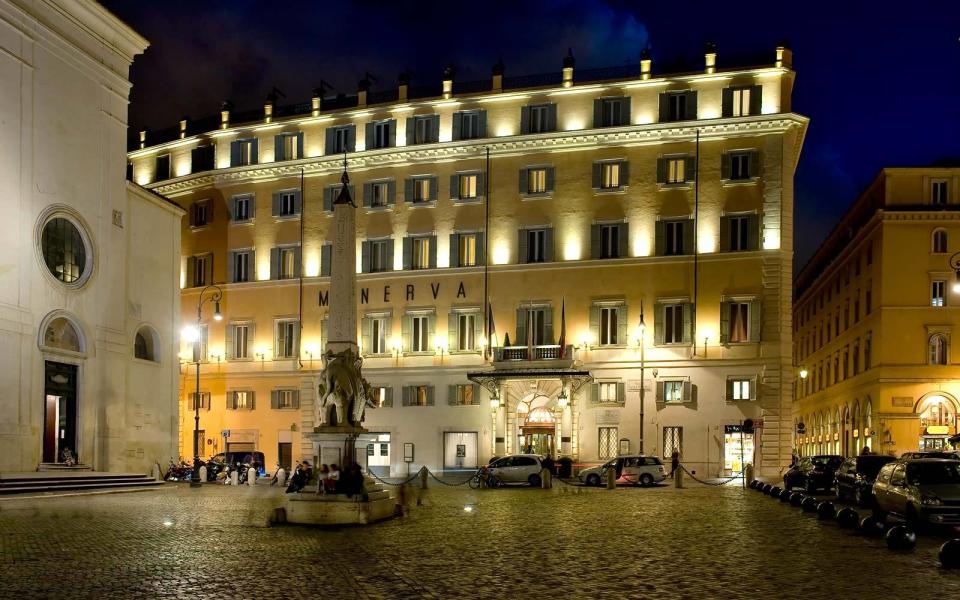
Courtesy image
Arsenale is an Italian company founded in 2020 by Paolo Barletta with the primary objective of enhancing Italy’s tourism sector through two main divisions: Hospitality Hotel and Resort. The group is behind the opening of the first Soho House in Italy, in Rome, which has seen a “strong interest from customers” since its opening, says Corsini, despite it being a totally new concept for the city. In addition, Arsenale acquired the Hotel de la Minerve in 2021, which is situated in one of Rome’s most prestigious locations, the Pantheon square.
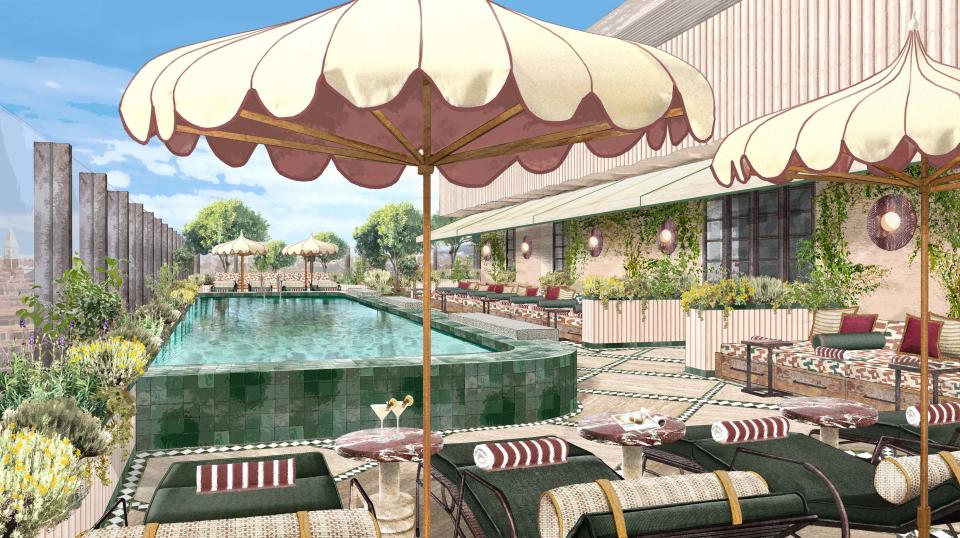
Courtesy image
The Hotel de la Minerve also will be used by guests of the Orient Express train “La Dolce Vita,” a project led by Barletta’s company. The train is a partnership among Arsenale, the Accor group and Trenitalia that allowed the group to develop a luxury train that offers five-star service across 14 Italian regions.
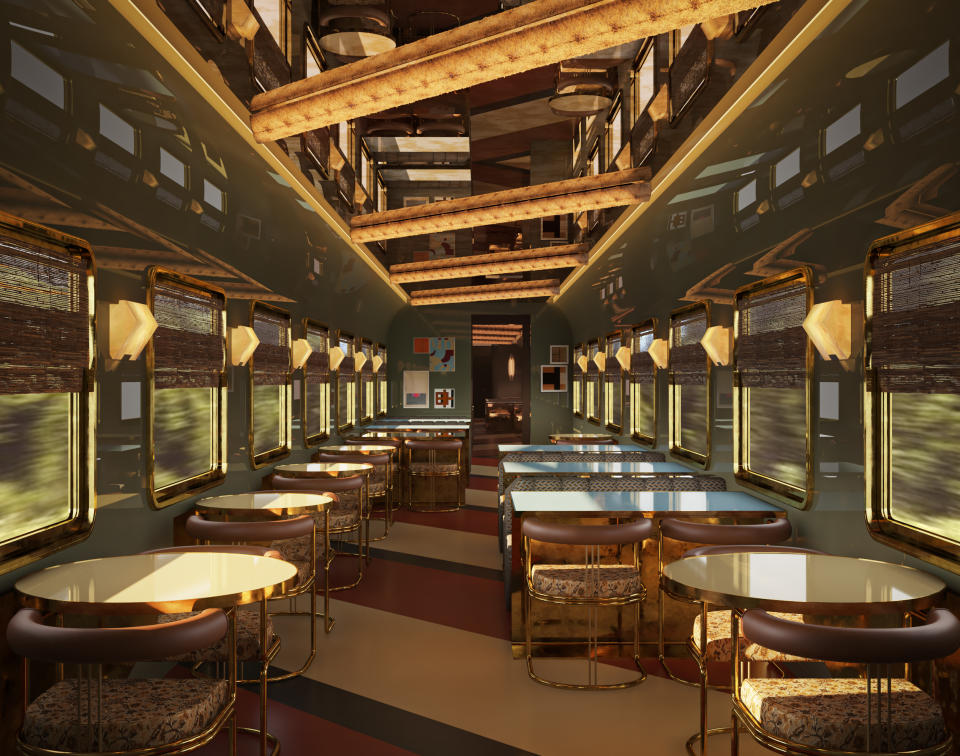
“We are investing a lot in Rome,” claims Corsini. “Our strategy is aimed at enhancing the most unique assets in the great city of Rome. To compensate our fast growth, we announced the partnership with the American fund, Oak Tree.”
On Via Veneto, in February Italian entrepreneur Flavio Briatore opened his Crazy Pizza restaurant.
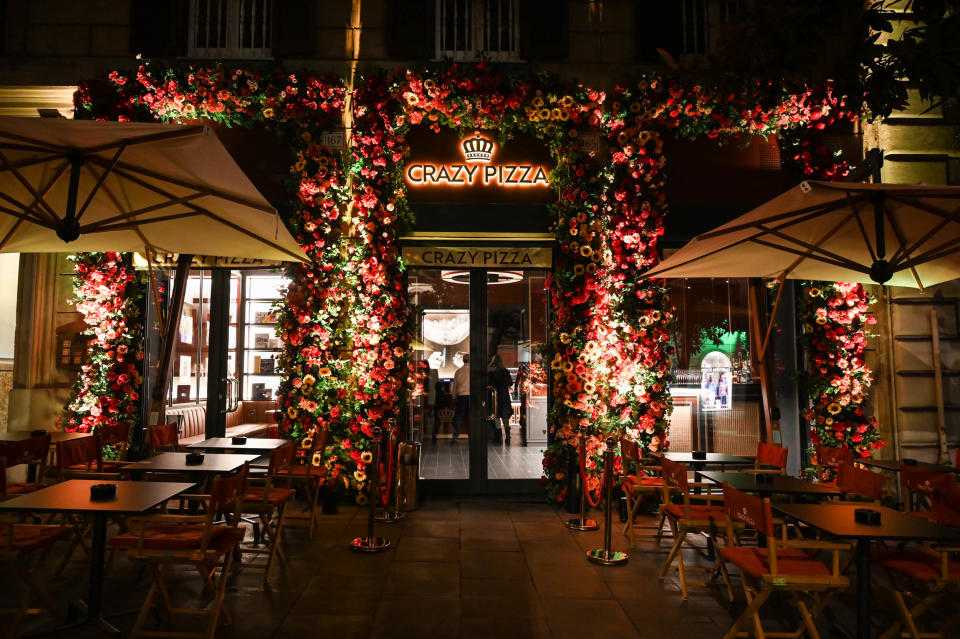
Courtesy image
Crazy Pizza, part of the Majestas luxury dining and entertainment group founded in 1988 by Briatore, in 2019 opened in London’s Marylebone, and the restaurant was so well received that it was followed by other units in London’s Knightsbridge right across the road from Harrods, Monte Carlo, Porto Cervo last summer, Riyadh and most recently in Milan.
“For our entry in Italy, and especially in Rome, we wanted to give a strong message, choosing an iconic location, Via Veneto, with the hope of being able to contribute to its well-deserved rebirth,” Briatore says. “Crazy Pizza moves away from the traditional concept of pizzeria. It is a chic reinterpretation of the most loved and popular food in the world.”
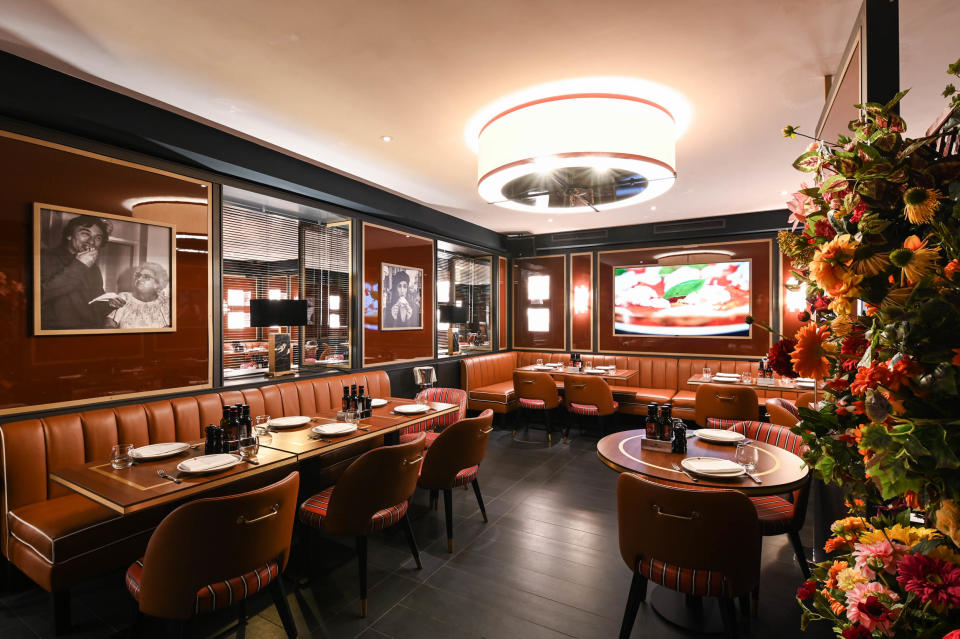
Courtesy image
While Crazy Pizza Rome started as dinner-service only, due to the high demand in April, the group decided to extend its opening to lunch. It can accommodate up to 42 guests in the outside patio and it has 62 seats indoors.
Next up for the Italian entrepreneur is the Twiga restaurant and club on Via Veneto, on the top floor of the Bernini Hotel in Piazza Barberini. It will combine great Italian cuisine with music, dancing and a club-like atmosphere, Briatore says. The establishment is already a key attraction in the luxury resort Forte dei Marmi as well as in London and Monte Carlo.
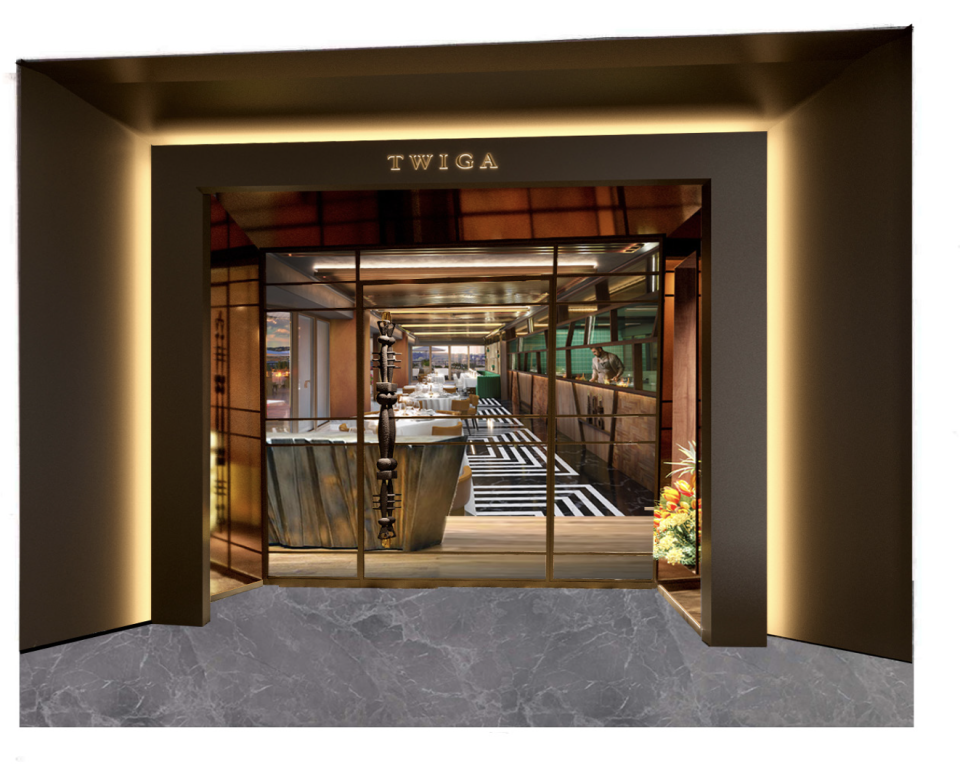
Courtesy image
Twiga Roma is still under construction and is expected to open in September, with 40 seats inside and a terrace that can seat 120.
Other openings are planned this summer, including the Nobu Hotel and restaurant, located in the historic Grand Hotel Via Veneto’s building. In 2023, the Rosewood hotel will arrive in the capital, as will the Mandarin Oriental in Via Piemonte, just five minutes walking distance from Via Veneto.
Luxury and international hospitality groups are integrating the city’s enormous artistic and historical heritage into their projects. For example, W Rome, which opened last fall in Via Liguria, a two-minute walk from Via Veneto, inaugurated its terrace in April. Owned by American multinational group Marriott, this is the first W hotel to open in Italy.
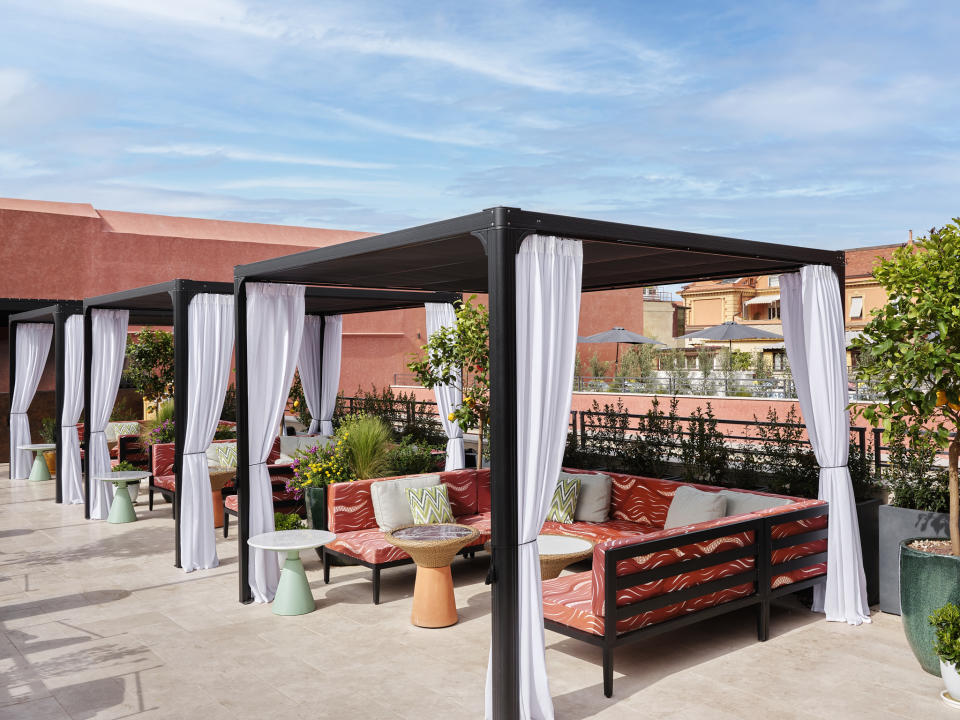
Courtesy image
Thanks to the expertise of the Meyer Davis Studio, the hotel maintains classic Roman features, such as the courtyard inspired by the architectural style of the 17th-century Francesco Borromini, decorated with benches and fountains; the suites, which have references to Rome, and the terrace offering unique views of the city.
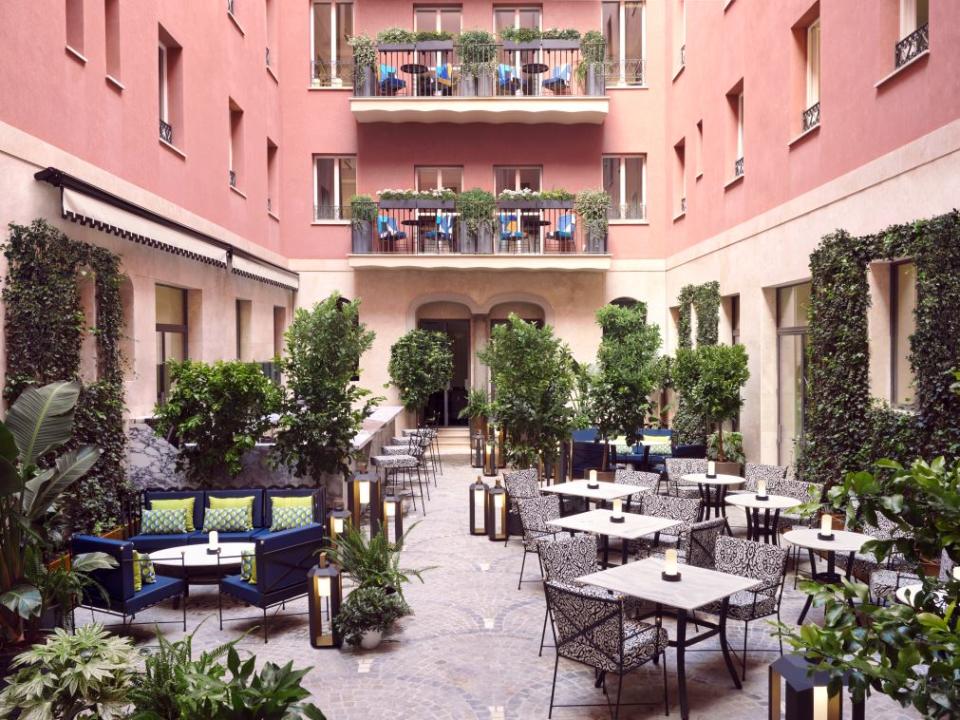
Courtesy image / Alonso de Celada
The W Rome occupies two adjacent 19th-century buildings and has 147 rooms and 15 suites. According to Candice Cruz, vice president for Europe, Middle East & Africa of Marriott International, “W Rome will surprise both international travelers and local citizens with unforgettable culinary experiences and sophisticated designs inspired by the history and culture of the city.”
The rebirth of Via Veneto means that Rome is expected to see rapid growth in the number of tourists who are willing to spend more but require unique experiences. In addition, in 2025 Rome will have its next jubilee and the city has entered the competition to be the site of the next Expo, in 2030.
Because of this, Arsenale’s head of business development Corsini says that it “is essential to take advantage of this historical moment, to enhance and adapt unique structures and be prepared once the resumption of tourist activity in Italy takes place.”
Best of WWD
Sign up for WWD's Newsletter. For the latest news, follow us on Twitter, Facebook, and Instagram.

